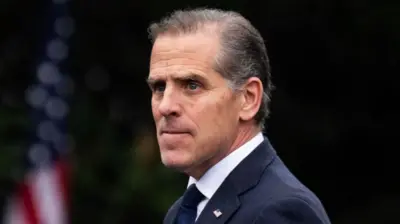We've updated our Privacy and Cookies Policy
We've made some important changes to our Privacy and Cookies Policy and we want you to know what this means for you and your data.
Fears over ВЈ65bn 'NHS mortgage'
- Author, Nick Triggle
- Role, Health reporter, ҙуПуҙ«ГҪ News
The NHS in England faces a total bill of ВЈ65bn for new hospitals built under the private finance initiative (PFI), figures obtained by the ҙуПуҙ«ГҪ indicate.
The so-called "NHS mortgage" means that for some trusts annual repayments take up more than 10% of their turnover.
Economists said the fees, which rise each year, would make it harder to achieve savings while doctors said they would mean less money for patient care.
But the government said the 103 schemes were providing value for money.
Under the schemes, private firms pay for and build new hospitals and mental health units, leaving the NHS to pay off what is effectively its mortgage over a period of 30 or so years.
The data shows that the value of the projects when they were built was ВЈ11.3bn.
However, over the lifetime of the deals, the NHS is due to pay back ВЈ65.1bn, once extra costs such as maintenance, cleaning and catering are taken into account.
The figures also reveal the levels of repayments are rising. In total, the NHS currently pays back ВЈ1.25bn each year - a figure which rises year-on-year until 2030 when it will top ВЈ2.3bn. The final payment will not be made until 2048.
The situation has prompted calls for the NHS to try to renegotiate the deals to help it cope during the squeeze on public spending and with the emphasis now on moving care out of hospitals and into the community.
While the NHS budget is being protected, the health service has still been told to find up to ВЈ20bn of savings by 2014 to help it cope with pressures from the ageing population, the rising price of drugs and lifestyle changes such as obesity.
Squeezed
Professor John Appleby, chief economist at the King's Fund health think-tank, said: "It is a bit like taking out a pretty big mortgage in the expectation your income is going to rise, but the NHS is facing a period where that is not going to happen.
"Money is being squeezed and the size of the repayments will make it harder for some to make the savings it needs to. I don't see why the NHS can't go back to its lenders to renegotiate the deals, just as we would with our own mortgages."
Dr Mark Porter, of the British Medical Association, added: "Locking the NHS into long-term contracts with the private sector has made entire local health economies more vulnerable to changing conditions.
"Now the financial crisis has changed conditions beyond recognition, so trusts tied into PFI deals have even less freedom to make business decisions that protect services, making cuts and closures more likely."
Nigel Edwards, director of policy at the NHS Confederation, which represents trusts, accepted there was a problem.
"They were planned for a different world. I'm sure that in some cases people feel their hands are tied."
And former NHS trust chief executive Roy Lilley warned the building of large hospitals under PFI was out of kilter with the move in the NHS towards community treatment.
But a Department of Health spokeswoman said the schemes were providing "value for money" and were "affordable".
She added: "All trusts, not just those with PFI contracts, will need to deliver significant efficiencies over the coming years in order to meet rapidly rising demands while protecting front-line services.
"One of the benefits of PFI is that the buildings are always contractually required to be kept in good condition - good maintenance will always cost more than not maintaining facilities to a high standard."
Top Stories
More to explore
Most read
Content is not available








